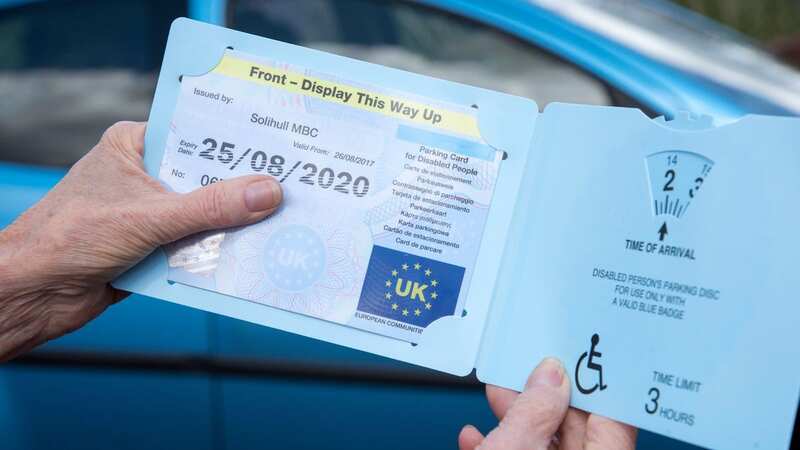

If you have a physical disability, a health condition that affects your ability to walk, or a hidden illness like dementia, autism or Parkinson's, you might be eligible for a Blue Badge.
This allows holders to park closer and more conveniently at places where they need to go. Whether you're the driver or passenger, you can use the badge to park free in disabled parking bays and you might also be able to avoid other parking restrictions. The blue badge can be used with any car you travel in, including taxis. And you can use it any time of the day.
You can even use it abroad, though the UK Government is currently working out which European countries will accept it after Brexit. A Blue Badge costs up to £10 in England, £20 in Scotland and is free in Wales. It usually valid for three years. It doesn't take a set amount of time to apply for a new one or renew it, but it usually takes around 12 weeks, reports Daily Record.
Local councils look after Blue Badge applications and set the price. Transport Minister Guy Opperman said last month: "Applications to the Blue Badge scheme are not dependent upon condition but are based on the need of the applicant to park closer to their destination. People with degenerative medical conditions could receive a badge if they meet the eligibility criteria. It is for the relevant local authority to decide if an applicant is eligible for a Blue Badge. The Department has no plans to change the eligibility criteria."
What you need to know about getting a Blue Badge:
Who can get a Blue Badge?
Some people might get a Blue Badge straight away, while others will have their local council check if they can have one. You might even have to see a healthcare professional to talk about how you move around.
 'UK's most neglected street with post-apocalyptic scenes like The Last of Us'
'UK's most neglected street with post-apocalyptic scenes like The Last of Us'
You'll definitely get a Blue Badge if you:
- you receive the higher rate of the mobility component of the Disability Living Allowance (DLA)
- you receive a Personal Independence Payment (PIP) because you can’t walk more than 50 metres (a score of 8 points or more under the ‘moving around’ activity of the mobility component)
- you are registered blind (severely sight impaired)
- you receive a War Pensioners’ Mobility Supplement
- you have received a lump sum benefit within tariff levels 1 to 8 of the Armed Forces and Reserve Forces (Compensation) Scheme and have been certified as having a permanent and substantial disability that causes inability to walk or very considerable difficulty in walking
- you receive the mobility component of PIP and have obtained 10 points specifically for descriptor E under the ‘planning and following journeys’ activity, on the grounds that you are unable to undertake any journey because it would cause you overwhelming psychological distress
You can use your Blue Badge to park:
You can use your Blue Badge to park in certain restricted areas for free, including:
- in pay and display bays
- in disabled parking spaces
- on single and double yellow lines if there are no loading restrictions
- Using your badge in other parts of the UK
- You can use your Blue Badge in most other countries. If you're using your Blue Badge in England or Wales you will need to use a parking clock - this comes with your Blue Badge. The Timer Clock is a plastic dial with hands that can be adjusted to show the time of parking arrival.
What do I need to apply?
Applications are made online to your local council and you’ll need a recent digital photo showing your head and shoulders - you can take this picture yourself.
You will also need a photo or scan of your:
proof of identity (such as a birth certificate, passport or driving licence)
proof of address such as a Council Tax bill or government letter - you can also choose to have your local council check the Electoral Register instead
proof of benefits - if you get any
You will also need to know:
your National Insurance number
the details of your current Blue Badge - if you’re reapplying